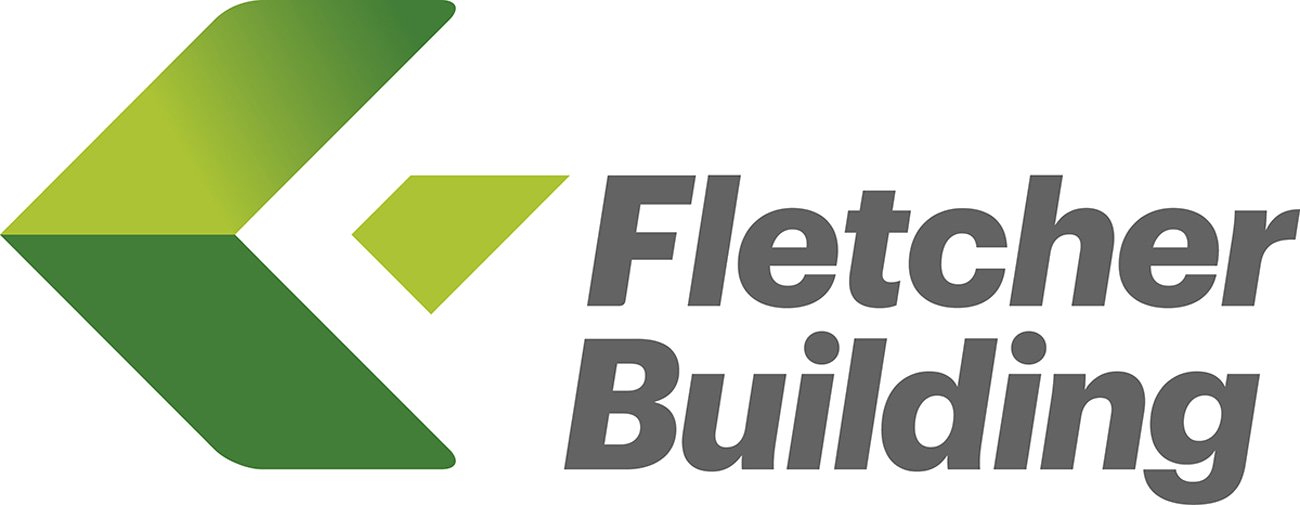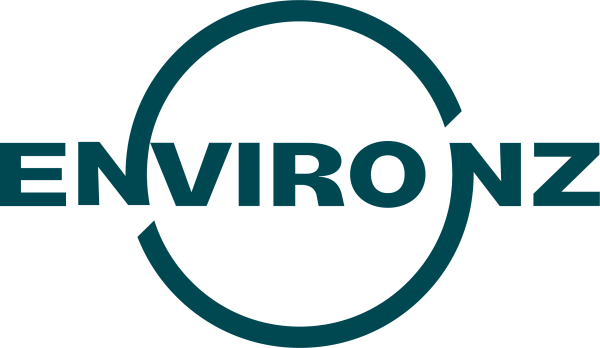The increasing demand for sustainable and resource-efficient construction processes presents significant opportunities for specifiers, suppliers, and contractors to transform their business practices for the better. This demand is fueled by several factors, including the government’s desire to reduce carbon emissions. The ultimate goal of sustainability is to ensure that we do things today in a way that can be sustained for the future. At Envirocon, we understand that these changes can be painless, practical, and cost-effective, as we have successfully implemented them for the past 18 years.
A Practical Approach to Sustainable Construction
Implementing sustainability doesn't have to be a daunting task, but it often requires partnering with experts in the field. This is where Envirocon comes in. Approximately 300,000 tonnes of high-quality, certified, wet concrete - equivalent to seven Sky Towers worth - would go to waste because it cannot be used before it cures. Envirocon was established to eliminate this waste. We work closely with some of New Zealand's largest concrete companies to permanently close the loop on concrete waste by transforming excess high-quality concrete into precast concrete products that can be reused repeatedly. Our expertise lies in matching insecure and volatile supply with mass market demand. We do the hard work on sustainability so our customers can unlock exceptional benefits.
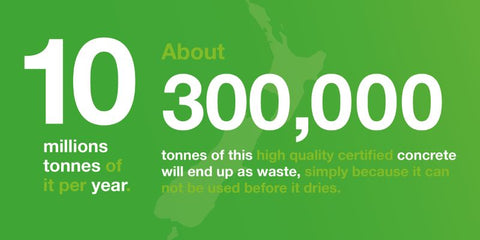
Accreditation Matters, Avoid Greenwashing
When there is a demand for a solution that is not readily available, there may be a temptation to offer an inadequate response, which is known as greenwashing in the sustainability world. Greenwashing occurs when a proposed solution may sound good but ultimately fails to make a significant impact. Specifiers, contractors, and asset owners need to feel reassured that their sustainability initiatives are genuinely effective.
Envirocon serves as an example of how to achieve this. Our company operates New Zealand's only construction-related Product Stewardship Scheme, which has been accredited by the Minister for the Environment under the Waste Minimisation Act 2008, demonstrating our zero-waste approach to handling excess concrete. Additionally, we have a registered Environmental Product Declaration that establishes the ultra low embodied carbon profile of our blocks. These two independently verified accreditations provide a comprehensive sustainability solution for contractors striving to fulfill complex and ambitious sustainability objectives.
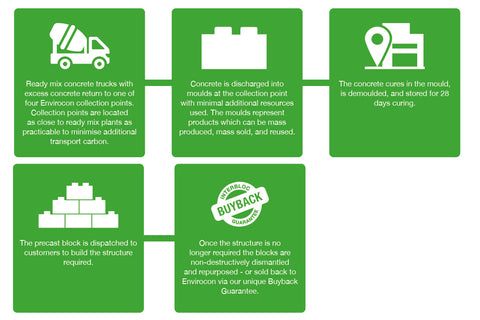
It’s Only Going to Get More Important
By putting carbon reduction plans into action, we can help mitigate further impacts including slowing down global warming. The average global temperature is projected to increase by 1.5°C above pre-industrial levels by 2040, and without immediate and significant action, the impacts of climate change will only become more severe (Intergovernmental Panel on Climate Change).
Creating more resource-efficient practices also supports a more sustainable planet. By shifting focus to resource efficiency, it’s estimated we can reduce the use of raw materials by 60% and the costs of waste management by up to 90% (European Commission). Choosing solutions that enable the ability for resource efficiency will help achieve these estimates.
Sustainable construction is a topic of growing importance, and the New Zealand government has enacted two critical pieces of legislation regarding carbon reduction and resource efficiency: the Zero Carbon Act and the Waste Minimisation Act.
Enacted in 2019, the Zero Carbon Act sets a target for New Zealand to achieve net-zero carbon emissions by 2050 and establishes an independent climate commission to provide guidance on accomplishing this goal. The Waste Minimisation Act, enacted in 2008, promotes waste reduction, reuse, and recycling, with the goal of conserving resources.
Envirocon and its product ranges demonstrate how compliance with these Act’s can be achieved without needing to reinvent the wheel;
- Reusing wet excess concrete that would otherwise be sent to landfills, resulting in low-carbon, zero-waste Interbloc as the carbon cost has already been assigned to the project from which it originated.
- Creating Interbloc and Stonebloc to be dismantled with fewer new materials needed, thereby producing less carbon.
- Reusing wet excess concrete and preventing it from being sent to landfills.
- Offering modular concrete blocks that can be used repeatedly without being discarded, minimizing waste. This create a circular economy.
Practical Sustainable Construction Case Studies
CITY RAIL LINK
The City Rail Link - a huge infrastructure project - aim’s set the benchmark for developing sustainable infrastructure in New Zealand. Following the ISCA framework, carbon reduction and resource efficiency are some of the projects’ highest priorities.
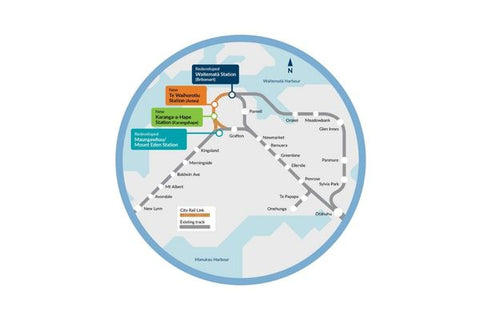
Envirocon and the Link Alliance started working together as soon as construction commenced in 2019. Link Alliance was able to get certainty excess concrete was diverted from landfill - helping to achieve the zero waste goals of the project, and at the same time reuse low embodied carbon blocks on the project.
Nick Braxton is the Principal Sustainability Advisor for the Link Alliance. He explains that the Alliance has a “zero waste to landfill” policy that makes Envirocon a perfect partner for them. “Our non- linear approach to waste management means we’re using excess concrete for a wide range of purposes instead of sending it to landfill,” he says.
As the project comes to an end, the intention is to take the blocks back off the project and repurpose them for other structures.
WATERVIEW TUNNEL
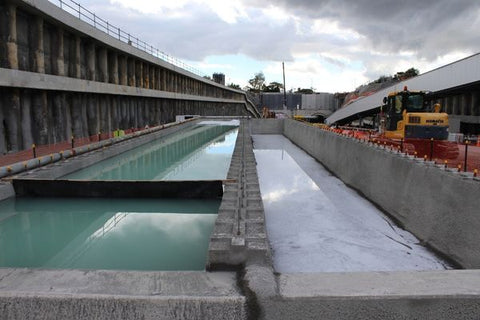
The $1.4 billion project, the Waterview Connection, includes the construction of 4.8km of six-lane motorway. To achieve this, extensive tunnelling needed to be conducted resulting in plenty of excess water.
Interbloc was contracted to form the settlement ponds for this project, largely due to the engineering capacity of the concrete blocks and that they could be removed easily after the project finished via the buyback guarantee.
By using Interbloc for their settlement pounds, the Waterview Connection was able to be resource efficient.
Key Lesson - Sustainability Doesn't Have to be Hard
Envirocon demonstrates how partnering with the right suppliers can deliver innovative and comprehensive sustainable construction solutions which don’t necessarily need to be difficult, expensive, or lower quality.






